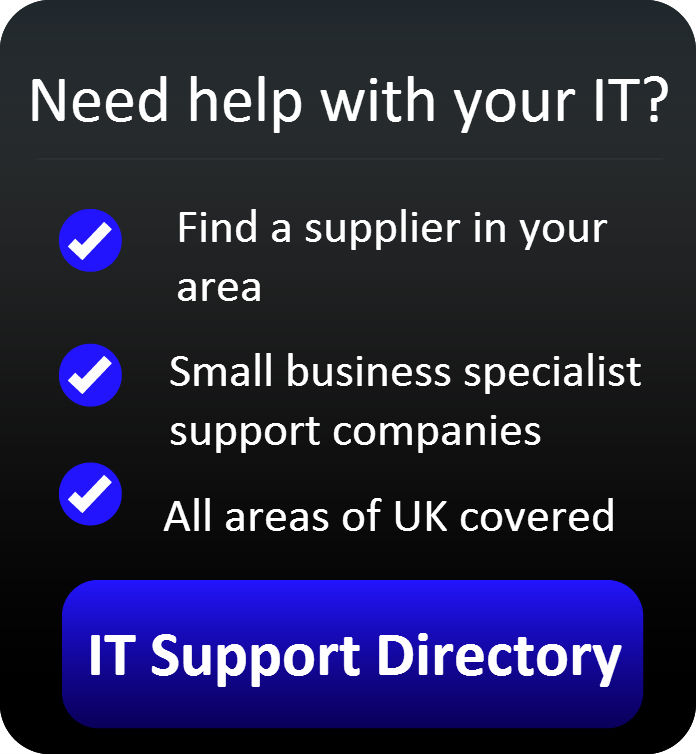In-house vs outsourced IT support
 Outsourced IT support or in-house IT support? It can be hard to decide which is right for your business. Both options have their advantages, but you need to be certain you're making the right decision before you commit to the investment
Outsourced IT support or in-house IT support? It can be hard to decide which is right for your business. Both options have their advantages, but you need to be certain you're making the right decision before you commit to the investment
To help you out, here's our quick guide to outsourced IT support vs. in-house provision.
In-house IT support
Developing an IT helpdesk in-house certainly has its benefits. With the right background and continued training, your support team can build up in depth, specialised knowledge of your company's particular IT set up and systems.
If they are based on site, your IT support team will also be available to solve problems quickly and efficiently.
However, IT support training costs money. Indeed, to stay current in the ever-changing world of technology your staff will need to undergo constant training and sit regular exams.
You also have to pay a regular salary to your IT support staff. Figure on at least £28,000 a year each (more in London). Experienced IT managers will expect to earn much more.
It can be tricky providing holiday and sickness cover too. What happens if one member of your two-person IT support team is on holiday, and the other is sick? You may also need an on-call rota, to deal with problems out of hours.
It's usually a mistake to rely on just one or two people to run your in-house support. Even the most experienced IT engineer will lack experience in some areas. To cover all the bases, you may be best with outsourced IT support.
Outsourced IT support
As a general rule, outsourced IT support is more cost-effective than creating an in-house helpdesk. An internal helpdesk would require at least two salaried staff members – and maybe more, depending on your company's size.
Outsourced IT support can be priced in different ways, but as a rough guide you can expect to pay anything between £15 per user per month and £350 a month to provide outsourced IT support to up to ten users depending on the location and level of support required.
That price would include management of your company server (if you have one), plus all your desktop and laptop computers. Many businesses find that – once they do the maths – outsourced IT support is clearly the better option.
Outsourced IT support also gives you access to a larger bank of expertise. If you choose a good IT support company, they'll have staff with experience and qualifications in a whole range of areas. Your outsourced IT support company should always be able to find someone to help, no matter what your requirements.
There are other good reasons to choose outsourced IT support too. It frees up time for people in your business to focus on running and growing it. Many companies find that, as they grow, a knowledgeable member of staff ends up becoming the 'IT scapegoat'.
Known to be good with computers, the 'IT scapegoat' gets bombarded with requests for help whenever anything goes wrong, distracting them from their actual job.
If your sales manager spends more time helping staff with computer problems than selling, then you know it's time to make some changes. The cost-effective answer is – usually – outsourced IT support. You make monthly payments to an outsourced IT support company, and your staff to get on with their jobs.
Also, if you turn to outsourced IT support, your support contract should describe a service level agreement (SLA). If the company you're relying on for outsourced IT support fails to hit response and resolution times defined in the SLA, they should face financial penalties.
This is not the case with in-house IT support – so you have a higher chance of your requirements being met by outsourced IT support.
- Taking up references for IT support contracts
- Case study: How we found our IT support company
- See our IT support directory





